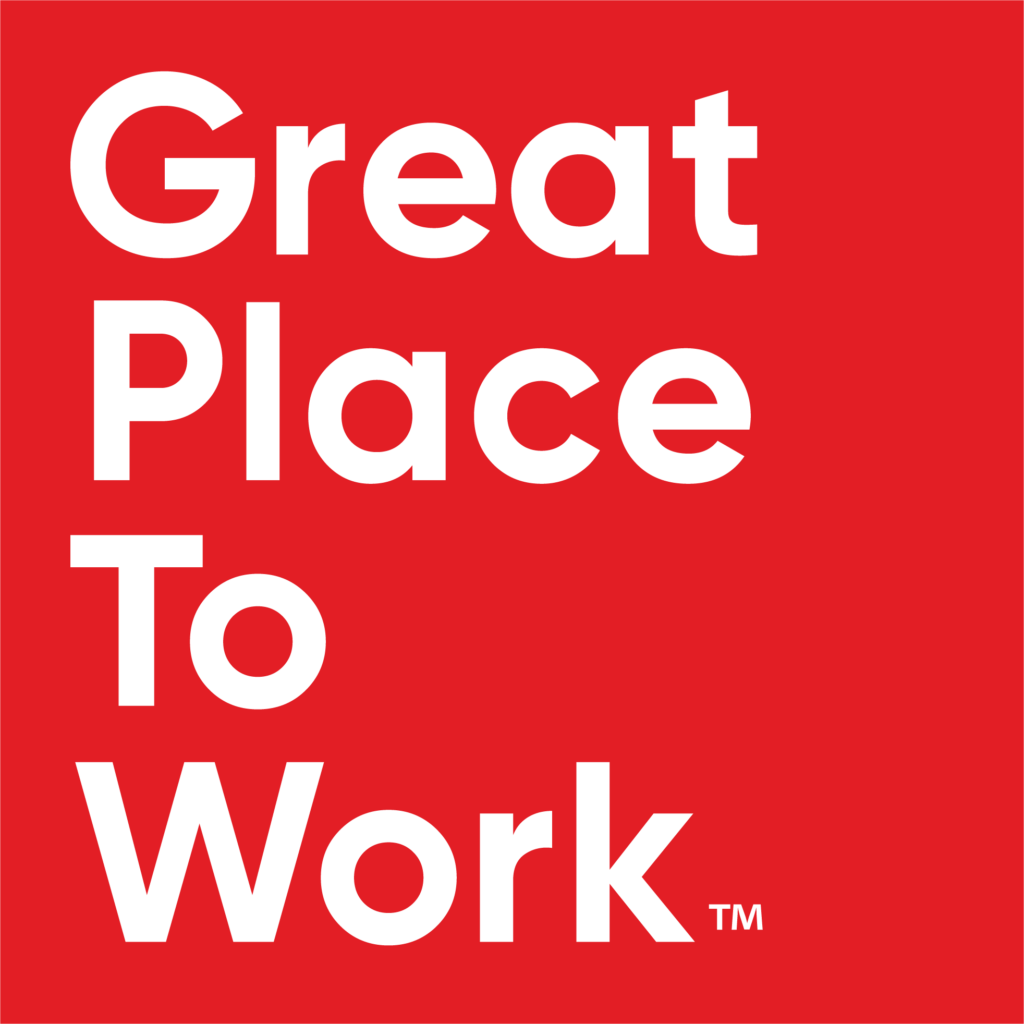By Ed Frauenheim and Claire Hastwell.
COVID-19 made Kate Ryder even more committed to her mission to support parents and families.
Kate is the founder and CEO of Maven Clinic, the world’s largest virtual clinic for women’s and family health. And as a parent of two children under five years old, she experienced first-hand just how challenging 2020 has been for moms and dads navigating lockdowns, shuttered childcare centers and ongoing work responsibilities.
Kate and her husband spent six months living with her parents for childcare support. And her family of four weathered stretches when they had to quarantine without any external contact.
Kate’s personal experience dovetailed with Maven witnessing a four-fold increase in demand for its mental health services, as well as a joint study between Maven and Great Place To Work™ on the experience of working parents.
The research discovered high levels of burnout among parents, and particularly heavy burdens on parents of color. The study also highlighted hope – in the form of the Best Workplaces for Parents™, which have stepped up their support for working parents.
To Kate, the research and the experience of the past year all point to the need for organizations to focus more attention on the needs of employees as they seek to become parents, have children and then balance parenting with careers.
“Everyone’s struggling,” Kate says. “We’ve been fortunate, given we have family around, but it’s been personally challenging.”
Kate spoke with Great Place To Work™ CEO Michael C. Bush about Maven and its evolving mission during the December 11, 2020, edition of “Better Together,” Great Place To Work™ ’s conversation series with exceptional, purpose-driven leaders.
Michael pointed out that Maven is itself a Certified™ great place to work and a Best Workplaces in New York™ winner. While only about 6 in 10 of employees at a typical U.S.-based company consider their workplace great, fully 98% of employees at Maven Clinic say their company culture isexcellent.
Caregiving support is a popular employee benefit during COVID-19
What’s more, Great Place To Work™ is a customer of Maven Clinic. And its services to support parents have been vital during the past year.
“For our people in 2020, when they talk about what has madeGreat Place To Work™ a great place to work for all, there’s two things,” Michael said. “One is the bonus that we gave them at the start COVID-19 to help their families with unexpected expenses. Number two was Maven. It was Maven. So, our people are just over the moon.”
Supporting working parents is good business sense
Kate worked as a venture capitalist before founding Maven six years ago. And to her, the issue of supporting working moms and families is a bottom-line matter.
The recent report on working parents produced by Maven and Great Place To Work™ , for example, found that companies that invest in employees and their families experience competitive advantages in the areas of:
- Innovation
- Employer branding
- Retention
- Productivity
Kate also came to the topic from personal experience. She watched as friends in their late 20s and early 30s struggled with challenges ranging from infertility and post-partum depression to difficulty returning to work while also juggling parenting duties.
These problems were not solved in a seamless fashion—if at all. Kate and Maven’s mission was to provide health care and related support for women and families in an integrated way.
Investors have been attracted to Kate’s holistic view. In February, Maven announced it had raised $45 million in a round of funding, bringing the company’s investment total to $92 million.
The cash injection allowed Kate to calm down her staff when the COVID pandemic erupted a few weeks later. She was able to reassure her employees they wouldn’t be laid off.
COVID: A crisis and an opportunity
In some ways, it has been better than OK.
With doctor office visits curtailed and parents wary of in-person settings during the pandemic, many moms and dads turned to Maven’s virtual healthcare options. Mental health services especially spiked, and Maven saw a 50% jump in demand for its telemedicine appointments overall.
Maven hired 92 people in 2020 to accommodate the growth. And the company has added products, including a Parenting & Pediatrics service that integrates coaching for parents with specialized pediatric care.
“I used our pediatric services multiple times throughout COVID because that was the only thing I had,” Kate said. “The entire healthcare system has now realized that virtual care can really do a lot, particularly in these routine categories like OB (obstetrics) and pediatrics–where you can really deliver a more efficient model that’s more democratic.”
The largest-ever study of working parents
To learn more about how working parents were faring during the pandemic, and what organizations were doing to support them, Maven and Great Place To Work™ teamed up for a recent study. The report represents the largest-ever study of working parents, with more than 440,000 parents surveyed at 1,244 U.S. companies.
Working parents – especially working mothers – are at a breaking point, the research discovered. As schools closed and distanced learning became the norm this past year, childcare and its burdens disproportionately fell to women. In September, four times more women than men dropped out of the labor force.
9.8 million working mothers in the U.S. are suffering from workplace burnout
What’s more, mothers are 28% more likely to experience burnout than fathers and are experiencing 2.4 million estimated additional cases of burnout due to unequal demands of home and work.
But the report also contained good news. Best Workplaces have met the moment by increasing their benefits for parents and parents-to-be. Companies with generous leave policies see both mothers and fathers taking more time – ensuring that women don’t leave money on the table and that caregiving is a family affair.
Companies with the best workplaces are also thinking beyond maternity leave to support employees throughout the entire journey of planning and raising a family. For example, more than 8 in 10 (81%) of Best Workplaces are providing reimbursement for fertility treatments, and over the past three years, nearly half have increased their coverage.
Parental benefits that close racial gaps
One important finding of the study is that supporting working parents is a diversity, equity and inclusion (DEI) issue. That’s because underrepresented racial groups are more likely to be working parents, and they’re more likely to experience burnout.
One of the ways Maven has tackled the DEI dimension of parental health is by building a diverse network of providers. Kate said 40 percent of Maven’s network is made up of BIPOC—Black, indigenous, or other people of color. This allows Maven to pair up client employees with providers that have similar backgrounds and experiences.
After the murder of George Floyd in May, 2020, companies made declarations and pledges around matters such as hiring. But parental benefits that close racial gaps in the employee experience ought to be a priority, Michael said.
“If you want to do something about diversity and inclusion and belonging, to show your employees that you care for all people, that you can make their lives better right now, this is the one thing,” Michael said.
The past year may have been challenging for parent employees. But it also has helped open people’s eyes to the challenges working moms and dads face, Kate said.
“Increasingly everyone knows someone, whether it’s their sister or their direct report that they love, that they were so excited about her potential and then she leaves the workforce,” Kate said. “Particularly in the past few years, everyone has a story. And that’s great because it’s that personal and emotional connection to the problem that often drives the action.”







